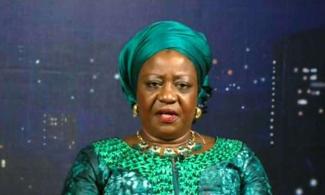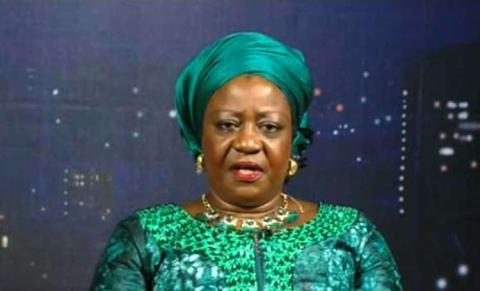
While it is believed that sharing of false news did not just start in 2018, the fact-check project by different newsrooms is joyfully helping to point out erroneous reports of many social media users who engage in the habit of promoting falsehood.

"I will never know, because I will never be able to be in the position to witness those things. And I don't care to know something I myself cannot confirm. No one should care about this" - Maria Karvouni
The spread of fake information on social media has recently posed lots of threat to peaceful co-existence in the society.
While it is believed that sharing of false news did not just start in 2018, the fact-check project by different newsrooms is joyfully helping to point out erroneous reports of many social media users who engage in the habit of promoting falsehood.
In 1931, the Japanese army staged mock attacks on itself to justify its invasion of China, and then created the fake country of Manchukuo to legitimise its conquests. In 1969, Israeli Prime Minister Golda Meir, said there is no Palestinian people and never was despite years of armed fight between Isreal and 'those that doesn’t exist.'
This has always been the trend but more popular following the advent of internet.
In July 2018, Nigerian government launched campaign against fake news, a decision linked to the possible effects of rumours towards escalation of crisis across the country.
In his speech, the Minister of Information, Lai Mohammed said the essence of the campaign is to sensitise all Nigerians to the dangers posed to the peace and security, and indeed the corporate existence of Nigeria by the phenomenon, and the fact that each and every Nigerian has a role to play in curtailing the spread of fake news.
"The timing is not unconnected to the role of fake news in aggravating the various crises in the country as well as the need to check this phenomenon ahead of the 2019 elections", he said.
Despite this sensitization, it is observed that many officials of the government are guilty of spreading fake news.
One of them is the media aide to President Muhammodu Buhari, Lauretta Onochie, an "arrowhead" when it comes to dissemination of fake news all in the name of politics.
Just on Tuesday, she posted a picture on Twitter that the People's Democratic Party (PDP) presidential candidate, Atiku Abubakar, distributed cash and food at his Sokoto rally held on Monday December 3 and was able to gathered over 2000 retweets for a picture later proved by a fact check to have first appeared online in February 2017 when a Lagos-based Charity foundation, released photos from an outreach.
Buhari's aide who is not a first timer in posting images misrepresenting facts in September also posted a picture of a rehabilitated Nasarawa-Jos Road which was later found to be false.
A team led by Sinan Aral of the Massachusetts Institute of Technology, wrote in their journal of science that: “Falsehood diffused significantly farther, faster, deeper, and more broadly than the truth in all categories of information, and the effects were more pronounced for false political news than for false news about terrorism, natural disasters, science, urban legends, or financial information”
“It took the truth about six times as long as falsehood to reach 1,500 people. And it wasn’t bots spreading most of the falsehoods, they found. It was real people doing most of it. Usually ordinary people, too, they found: so-called ‘verified’ users and those with many followers were not usually the source of some of the most popular untrue viral posts."
While citizens must see themselves beyond being mere readers of information on social media or as factual advocates not spreading loose information that may lead to mass violence, who will punish the president's aide for posting fake information to elevate his principal?
Adejumo Kabir, is a student journalist at Obafemi Awolowo University, Ile Ife